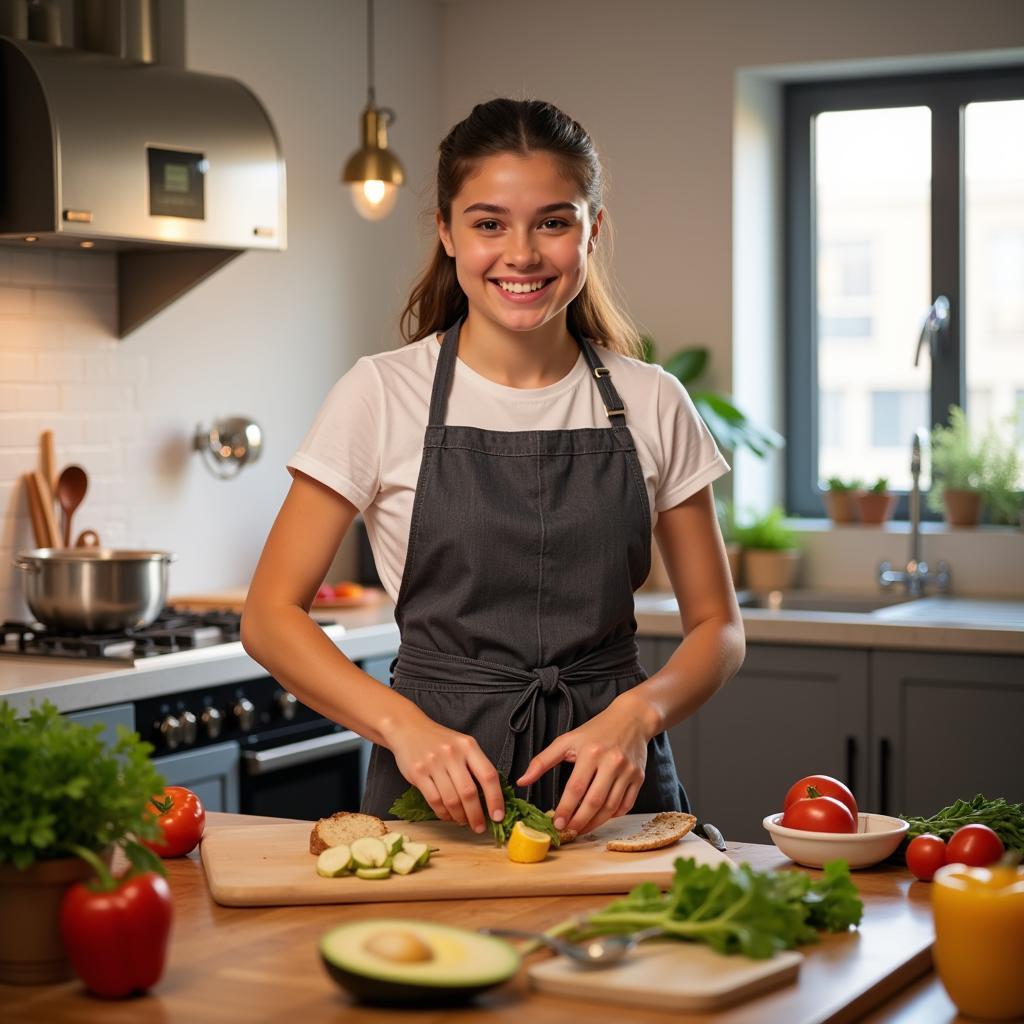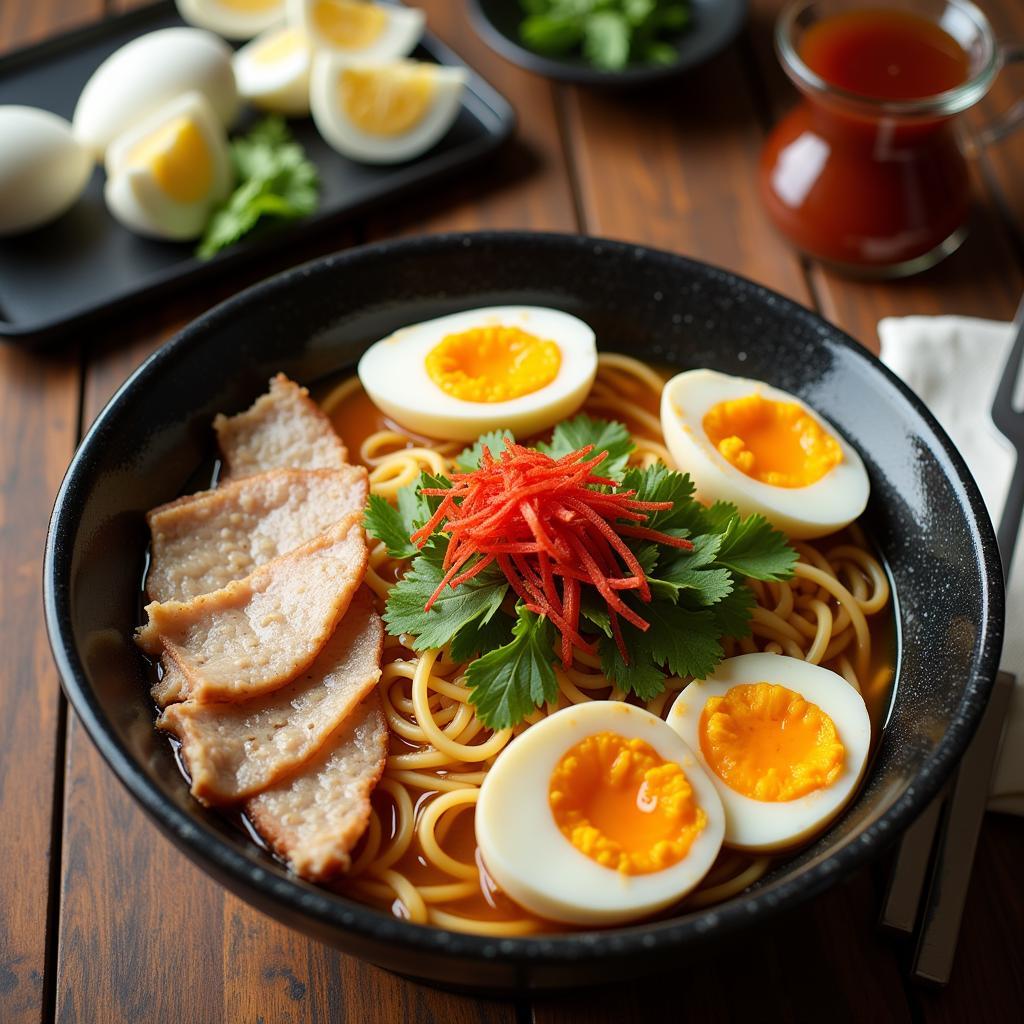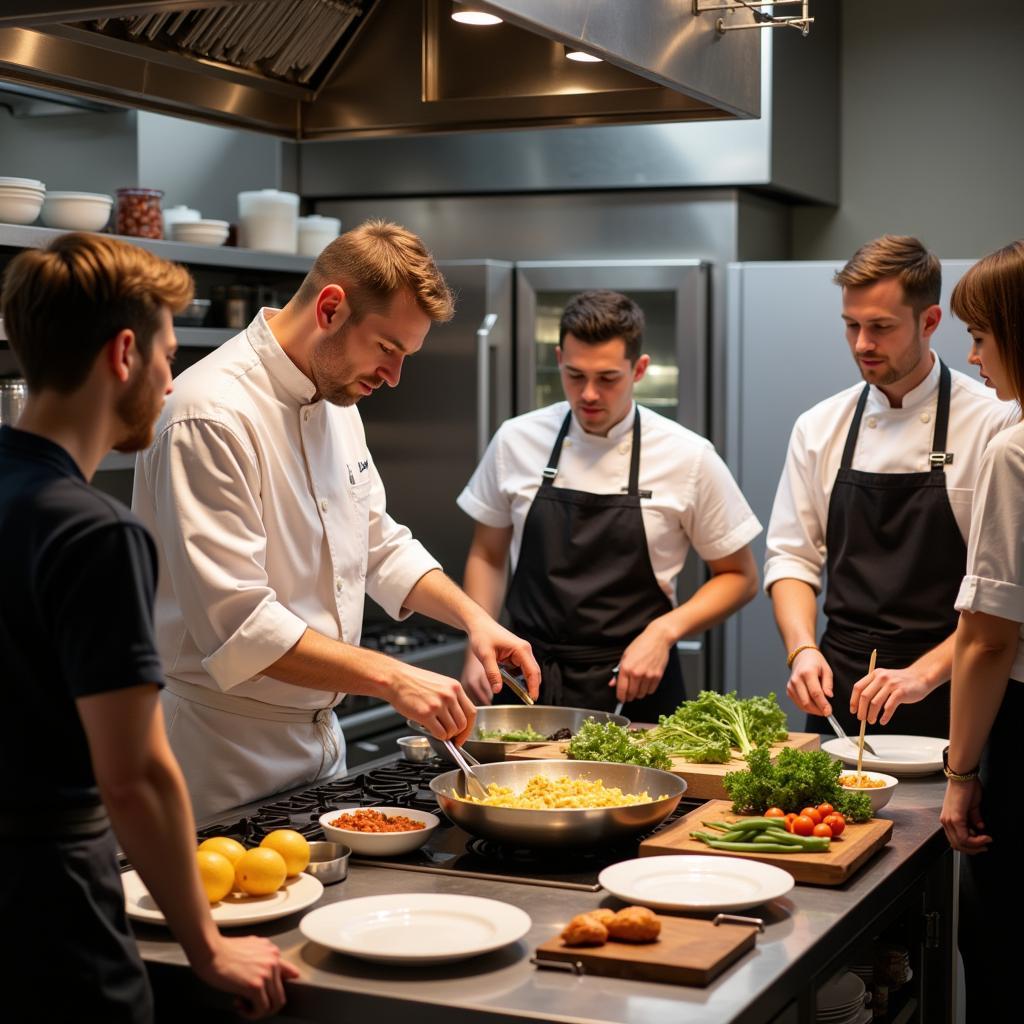Learning to cook is a common topic in IELTS Speaking tests, particularly when discussing food, hobbies, or life skills. Let’s explore how to effectively answer questions about a dish you would like to learn to cook, with sample answers that can help you achieve a higher band score.
Part 1: Introduction and Interview
Common questions examiners may ask:
- Do you enjoy cooking?
- How often do you cook?
- What is your favorite type of food?
- Where did you learn to cook?
Sample answer (Band 8-9):
“I absolutely love experimenting in the kitchen. While I’m not a professional chef, I find great joy in creating dishes from scratch. I usually cook at least four to five times a week, as I believe homemade meals are both healthier and more satisfying than takeaway food.”
 A person enthusiastically cooking in a modern kitchen
A person enthusiastically cooking in a modern kitchen
Part 2: Cue Card
Your task is to describe a dish you would like to learn how to cook. You should say:
- What the dish is
- Why you want to learn to cook it
- How difficult you think it will be
- And explain how you plan to learn it
Similar to describe a dish from another country you would like to try, this topic requires detailed description and personal connection.
Sample Answer (Band 8-9):
“I’ve always been fascinated by the art of making authentic Japanese ramen. This isn’t the instant variety but the meticulously crafted bowl with rich, complex broth, perfectly tender chashu pork, and handmade noodles.
My passion for mastering this dish stems from a memorable trip to Tokyo, where I experienced the sublime combination of flavors in a small ramen shop. The way the chef orchestrated each element was nothing short of culinary artistry.
I anticipate it being quite challenging, particularly the broth which typically requires 12-24 hours of careful simmering. The process of making noodles from scratch and achieving the perfect consistency will also demand considerable skill and patience.
To learn this craft, I plan to enroll in specialized cooking classes and possibly seek mentorship from a local Japanese chef. I’ve already begun researching traditional techniques and have sourced authentic ingredients.”
 Traditional Japanese ramen preparation process
Traditional Japanese ramen preparation process
Follow-up Questions:
- What makes this dish special to you?
- How long do you think it will take to master it?
- What skills do you need to develop first?
Just as in describe a favorite meal you enjoy cooking, your responses should demonstrate personal connection and detailed knowledge.
Part 3: Discussion Questions
Cultural Significance of Cooking
Q: How has traditional cooking changed in your country?
A (Band 8-9): “Traditional cooking has undergone a significant transformation in recent years. While the fundamental techniques remain preserved, there’s been a notable shift towards fusion approaches and modern interpretations of classic dishes. This evolution has been driven by globalization and changing lifestyle patterns.”
Learning and Technology
Q: How has technology influenced the way people learn to cook?
A (Band 8-9): “Technology has revolutionized culinary education through interactive cooking apps, online masterclasses, and streaming platforms. These tools have made expert knowledge more accessible and democratized, though nothing quite replaces hands-on experience.”
Similar to how to access road to ielts last minute, proper preparation and resource utilization are key to success.
Key Vocabulary and Expressions
- Culinary techniques /ˈkʌlɪnəri tɛkˈniːks/ – cooking methods and skills
- Artisanal /ɑːtɪˈzænəl/ – made in a traditional or non-mechanized way
- Gastronomic /ˌgæstrəˈnɒmɪk/ – relating to the art of cooking and eating
- Time-honored /taɪm ˈɒnəd/ – having been respected for a long time
- To perfect (a skill) /pəˈfekt/ – to make something as good as possible
Tips for High Scores
- Use specific cooking terminology
- Incorporate personal experiences
- Demonstrate cultural awareness
- Show progression of thought
- Include detailed descriptions
 Professional cooking demonstration and learning process
Professional cooking demonstration and learning process
Remember, just as in describe a food market you visited in a different city, providing rich, detailed descriptions and personal experiences will enhance your response.


